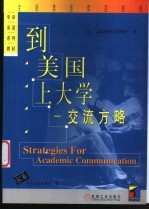图书介绍
到美国上大学 交流方略PDF|Epub|txt|kindle电子书版本网盘下载

- (美)(J.斯蒂尔)Jocelyn Steer著 著
- 出版社: 北京:机械工业出版社
- ISBN:7111071905
- 出版时间:1999
- 标注页数:255页
- 文件大小:27MB
- 文件页数:271页
- 主题词:
PDF下载
下载说明
到美国上大学 交流方略PDF格式电子书版下载
下载的文件为RAR压缩包。需要使用解压软件进行解压得到PDF格式图书。建议使用BT下载工具Free Download Manager进行下载,简称FDM(免费,没有广告,支持多平台)。本站资源全部打包为BT种子。所以需要使用专业的BT下载软件进行下载。如BitComet qBittorrent uTorrent等BT下载工具。迅雷目前由于本站不是热门资源。不推荐使用!后期资源热门了。安装了迅雷也可以迅雷进行下载!
(文件页数 要大于 标注页数,上中下等多册电子书除外)
注意:本站所有压缩包均有解压码: 点击下载压缩包解压工具
图书目录
1 Exploring College Culture1
PREVIEW OF THE CHAPTER2
Academic Topics2
Chapter Theme2
Taking Inventory:Your Own Thoughts2
Understanding College Terminology3
PART ONE:MAKING CROSS-CULTURAL CONNECTIONS4
Taking Inventory:Your Own Beliefs About Learning5
PART TWO:BECOMING FAMILIAR WITH CAMPUS LIFE8
Using Campus Services9
Learning About the Faculty10
Learing About College Administrators11
Attending Classes12
Taking Inventory:What Do You Think?12
Types of Classes12
PART THREE:TROUBLESHOOTING17
Choosing and Planninga Degree Program18
Dealing with Stress and Depression18
Making American Friends19
Dealing with Academic Concerns19
Dealing with Housing Concerns20
EVALUATING YOUR PROGRESS21
Gaining Expertise21
2 Tightening the Nuts and Bolts23
PREVIEW OF THE CHAPTER24
Academic Topics24
Chapter Theme24
Taking Inventory:Your Experiences24
PART ONE:DEVELOPING STUDy READING SKILLS25
Taking Inventory:Your Textbook Reading Study Habits25
Your Textbook Reading Study Habits:Feedback26
Previewing a Text27
Identifying Your Purpose in Reading28
Survival Tips:The Textbook29
Highlighting a Text29
Highlighting for Factual and/or Historical Information30
Highlighting for Ideas31
Annotating a Text33
An Example of Annotation34
Managing Vocabulary35
Gaining Expertise36
PART TWO:TAKING NOTES IN CLASS36
Your Study Habits:Feedback37
Taking Inventory:YourNote-Taking Study Habits in Class37
Identifying the Parts of a Lecture38
Survival Tips:The College Lecture38
Learning Abbreviated Note-Taking40
Recognizing Signal Words44
Gaining Expertise45
PART THREE:TAKING TESTS46
Taking Inventory:YourTest-Taking Study Habits46
Your Study Habits:Feedback46
Preparing for the Test47
Anticipating Test Questions48
Survival Tips:Tests and Your Professor48
Identifying Your Study Habits49
Controlling Test Anxiety50
Taking the Test50
Understanding Test Prompts52
Taking Objective Tests58
Reviewing the Returned Test58
Gaining Expertise59
Getting More Help59
Test-Taking60
Taking Notes in Class60
Study Reading60
EVALUATING YOUR PROGRESS60
REQUIRED READINGS61
3 Thinking and Communicating Critically87
PREVIEW OF THE CHAPTER88
Academic Topics88
ChapterTheme88
Taking Inventory:Your Own Thoughts88
PART ONE:SUMMARIZING STEP-BY-STEP91
Step One:Identifying the Controlling Idea92
Step Two:Identifying Key Supporting Ideas94
Step Three:Using Reporting Phrases to Acknowledge the Source97
Step Four:Adding Linking Devices99
Gaining Expertise99
PART TWO:PARAPHRASING SOURCES100
Learning Techniques for Paraphrasing101
Using Appropriate Synonyms101
Changing the Sentence Type104
Reducing a Clause to a Phrase106
Survival Tips:Paraphrasing107
Changing the Part of Speech107
Changing the Voice(Active or Passive)107
Gaining Expertise108
PART THREE:USING SYNTHESIS110
Step One:Summarizing Your Sources111
Step Two:AnalyzingYour Sources114
Step Three:Formulating Generalizations114
Step Four:Assembling Your Information115
Gaining Expertise116
EVALUATING YOUR PROGRESS117
4 Compiling and Communicating Research119
PREVIEW OF THE CHAPTER120
Academic Topics120
Chapter Theme120
Taking Inventory:Your Research Paper Experience120
PART ONE:GETTING STARTED120
Getting Acquainted with Your Library121
Library Terminology121
Library Basics122
Library Tour124
Making Cross-Cultural Connections125
Setting a Schedule for Your Research Paper126
Brainstorming for Topic Ideas127
Survival Tips:Paper Topics to Avoid128
PART TWO:CONDUCTING A SEARCH129
Surveying Your Topic129
Searching for Books131
Searching for Periodical and Newspaper Articles133
Using Indexes134
Electronic Databases and Print Indexes135
Locating Periodical Articles in the Library138
PART THREE:ORGANIZING YOUR RESEARCH139
Gaining Expertise139
Using Other Sources of Information139
Limiting Your Topic140
Writing a Thesis Statement141
Evaluating Sources144
Reading and Taking Notes145
Types of Note Cards146
Writing an Outline148
Sample Outline149
PART FOUR:CITING AND DOCUMENTING SOURCES149
Quoting a Complete Sentence150
Quoting Part ofa Sentence150
Using Direct Quotations150
Quoting a Paragraph151
Knowing When to Use a Quotation151
Acknowledging Material That Is Not Quoted153
Compiling a Reference List155
Gaining Expertise156
EVALUATING YOUR PROGRESS158
REPRESENTATIVE SUBJECT ENCYCLOPEDIAS158
PERIODICAL INDEXES159
MODERN LANGUAGES ASSOCIATION(MLA)STYLE SHEET161
LIBRARY TERMINOLOGY163
5 Communicating in Class167
PREVIEW OF THE CHAPTER168
Academic Topics168
Chapter Theme168
Making Cross-Cultural Connections168
Taking Inventory:Your Communication Comfort Level168
PART ONE:PARTICIPATING IN CLASS DISCUSSIONS169
Asking for Clarification and Information169
Taking Inventory:Your Own Thoughts171
Contributing to a Class Discussion172
Disagreeing173
Agreeing173
Survival Tips:Class Discussions173
Using Discussion Techniques173
Interrupting174
Soliciting Feedback174
Working in Groups176
Survival Tips:Dealing with Group Work176
PART TWO:GIVING FORMAL PRESENTATIONS177
Taking Inventory:Your Own Thoughts177
Presenting in Class178
Preparing a Talk on a Personal Topic178
Delivering a Talk179
Giving an Informative Presentation180
Giving a Persuasive Presentation182
Distinguishing Among Facts,Opinions,and Beliefs183
Evaluating Support183
Avoiding Problemsin Logic186
Gaining Expertise187
EVALUATING YOUR PROGRESS188
WORKSHEETS189
学习指导194